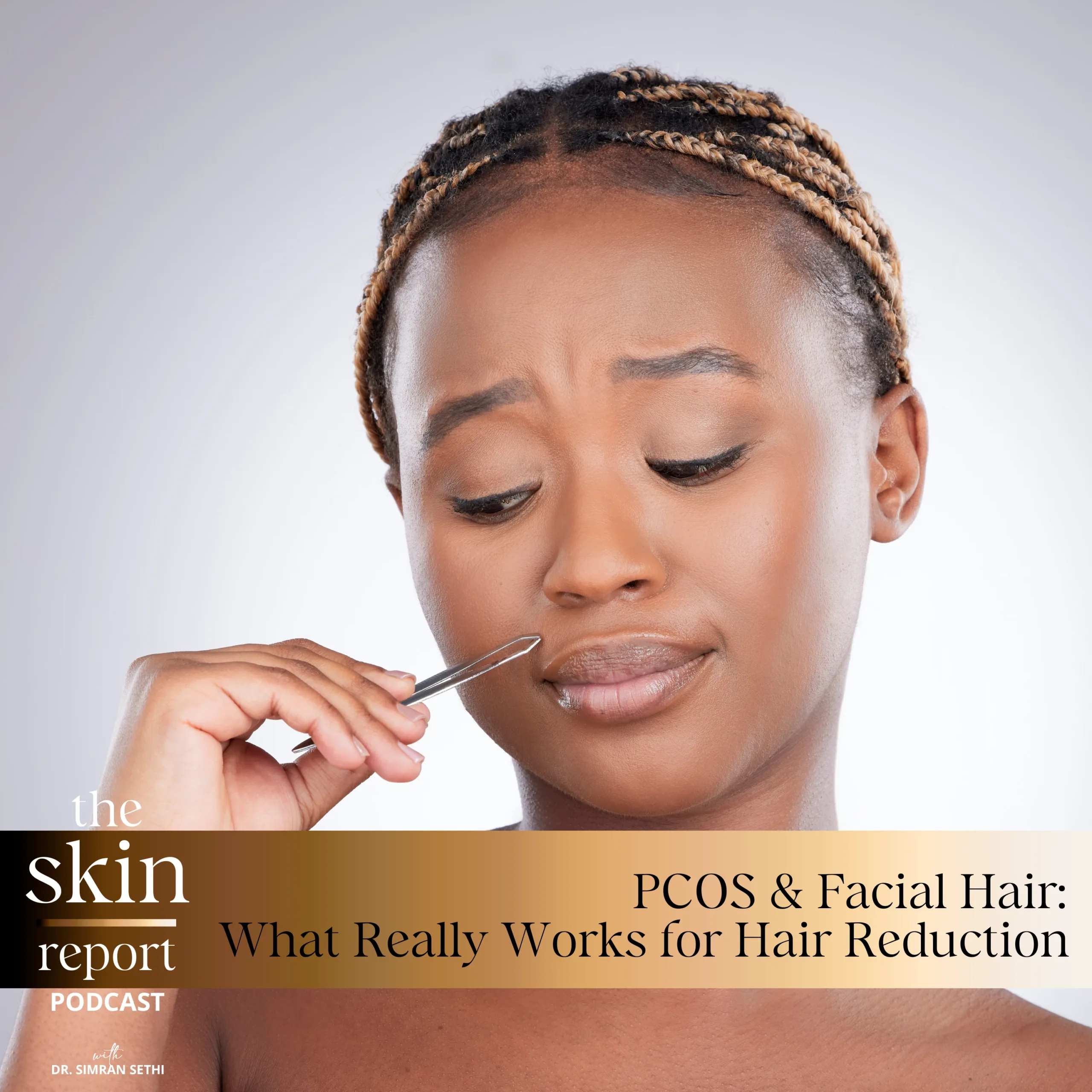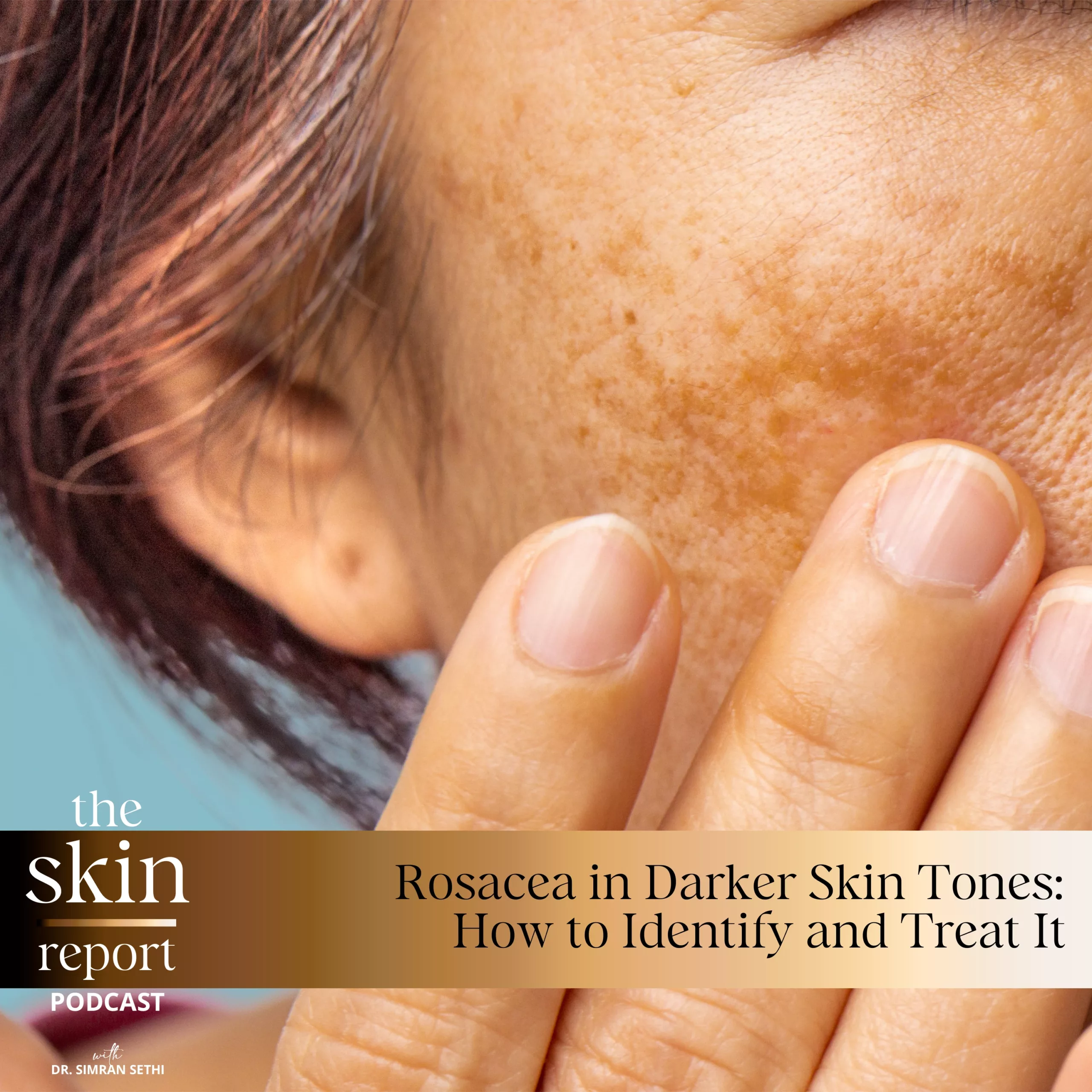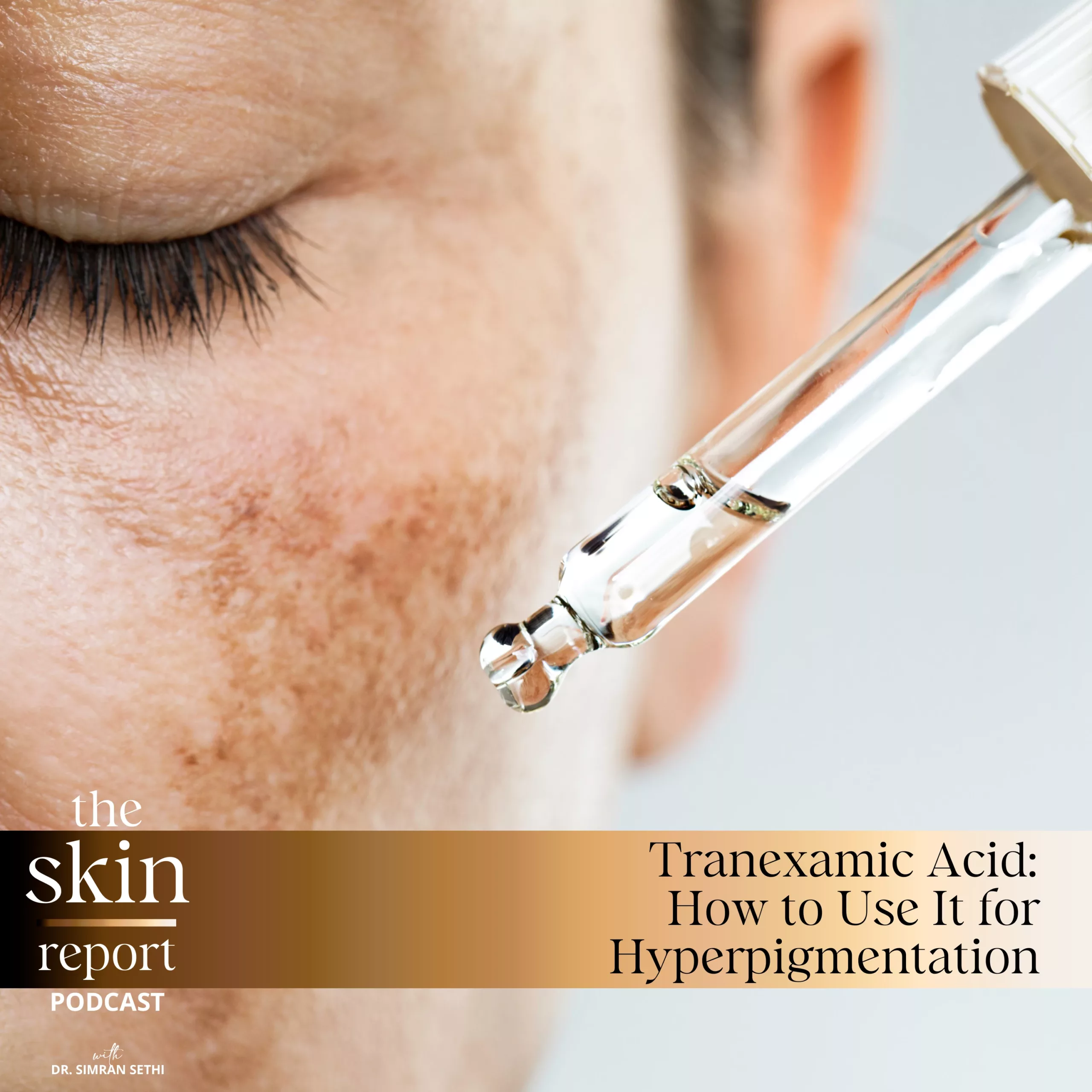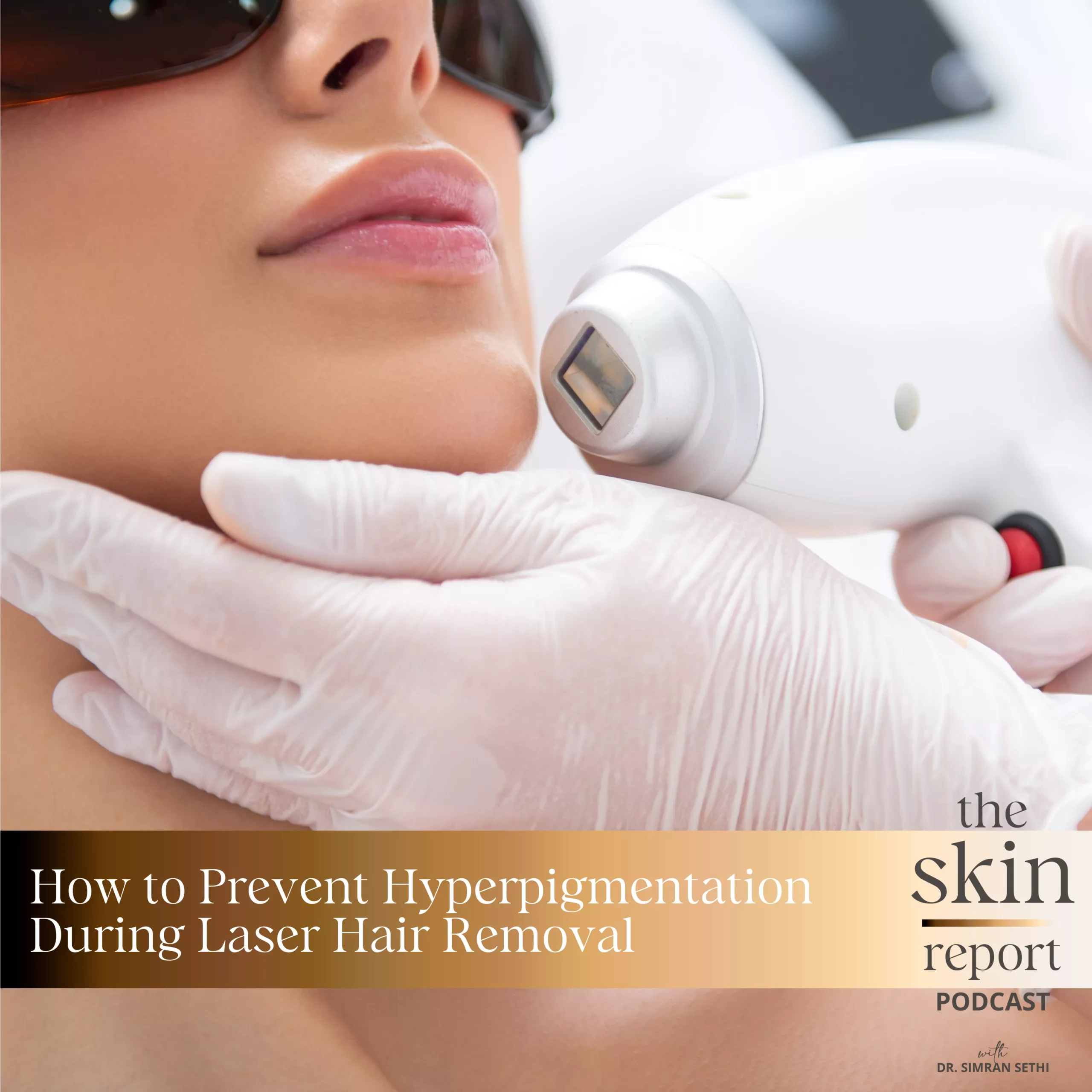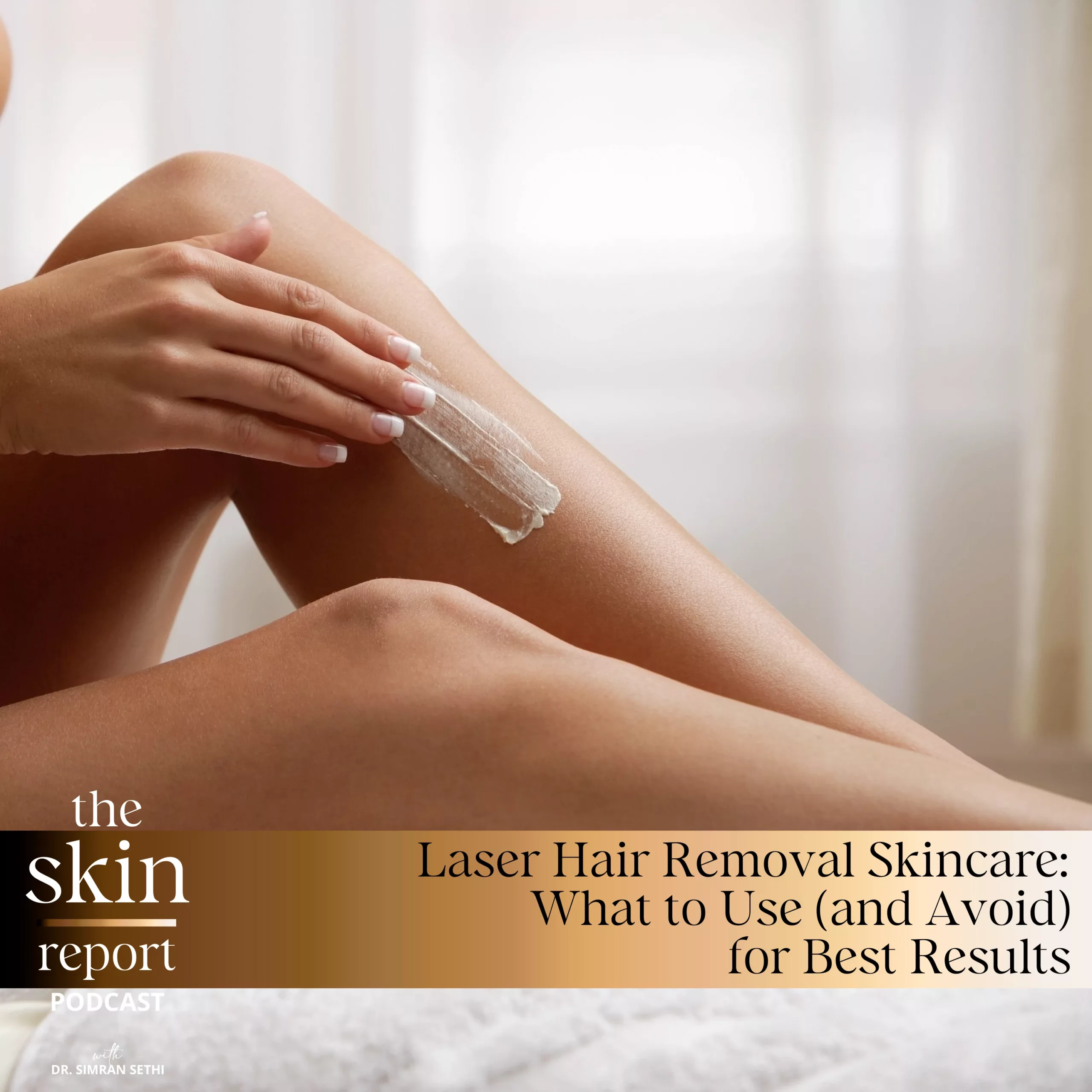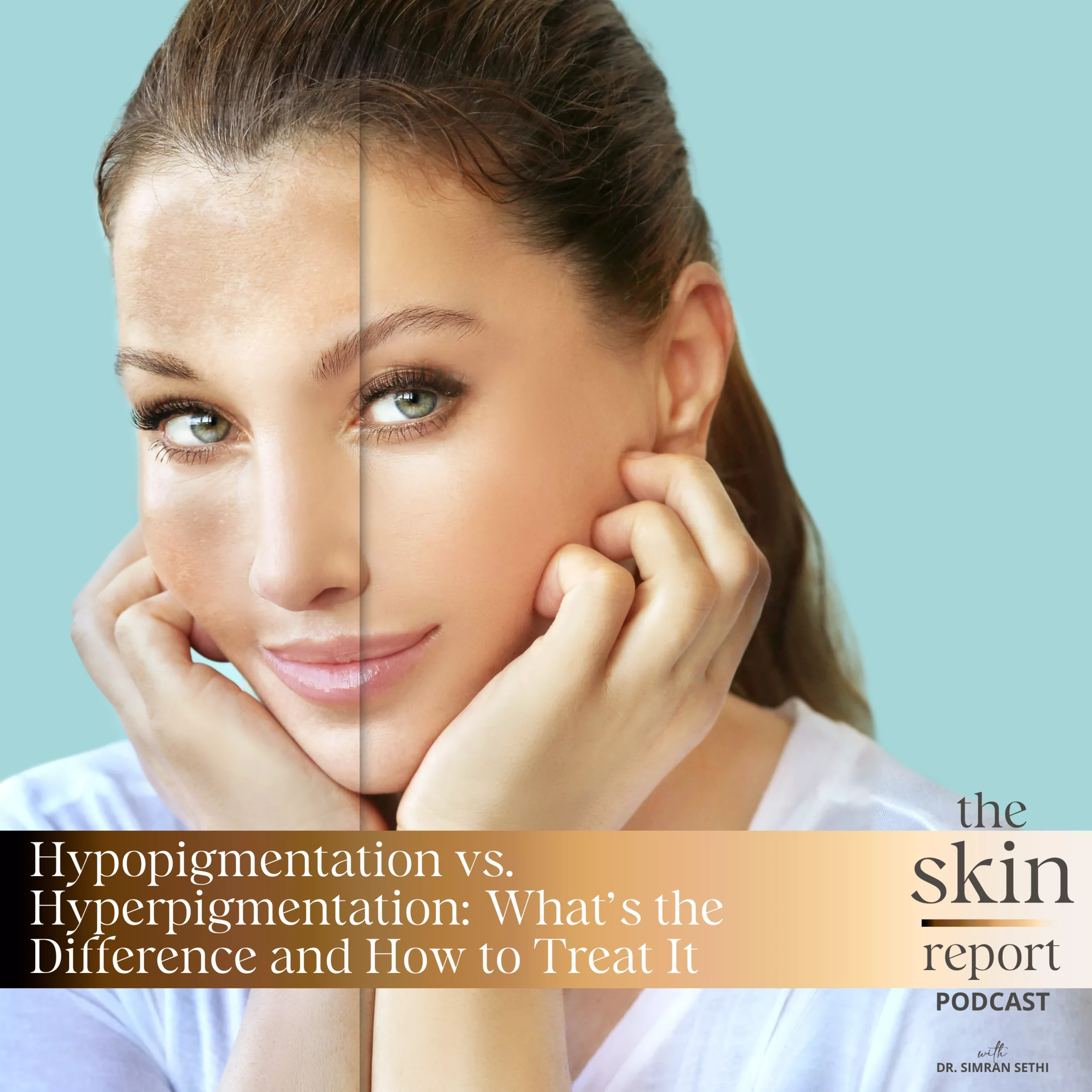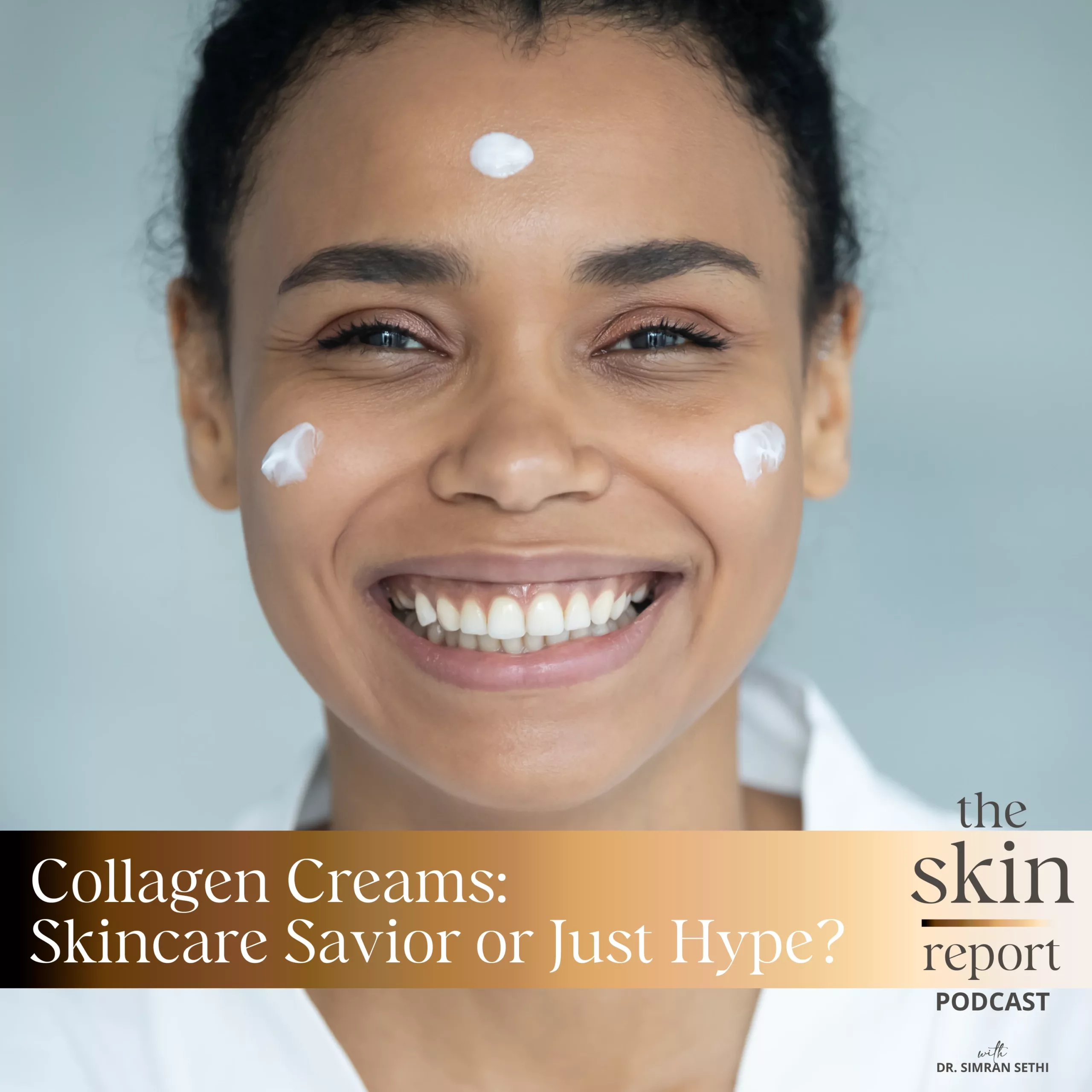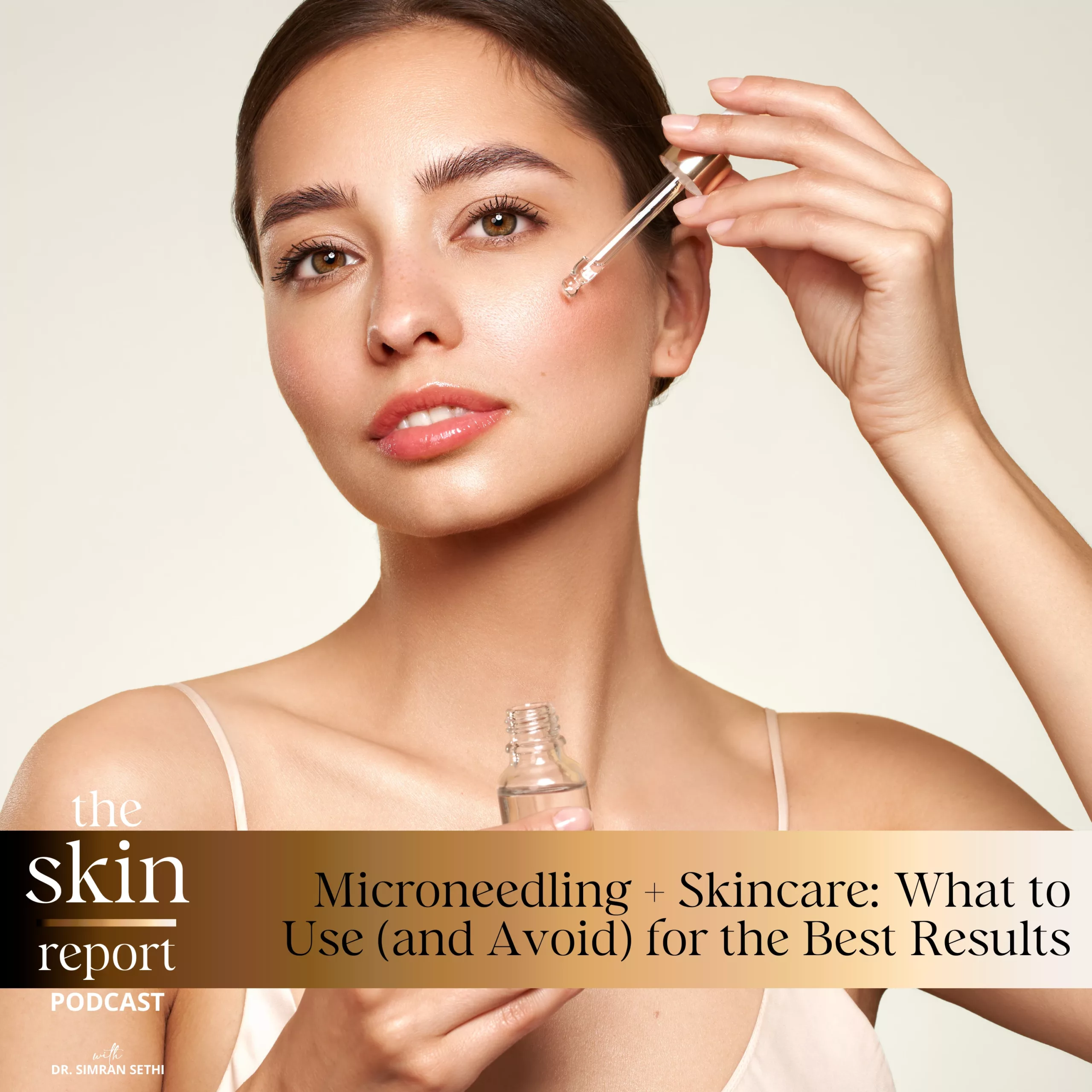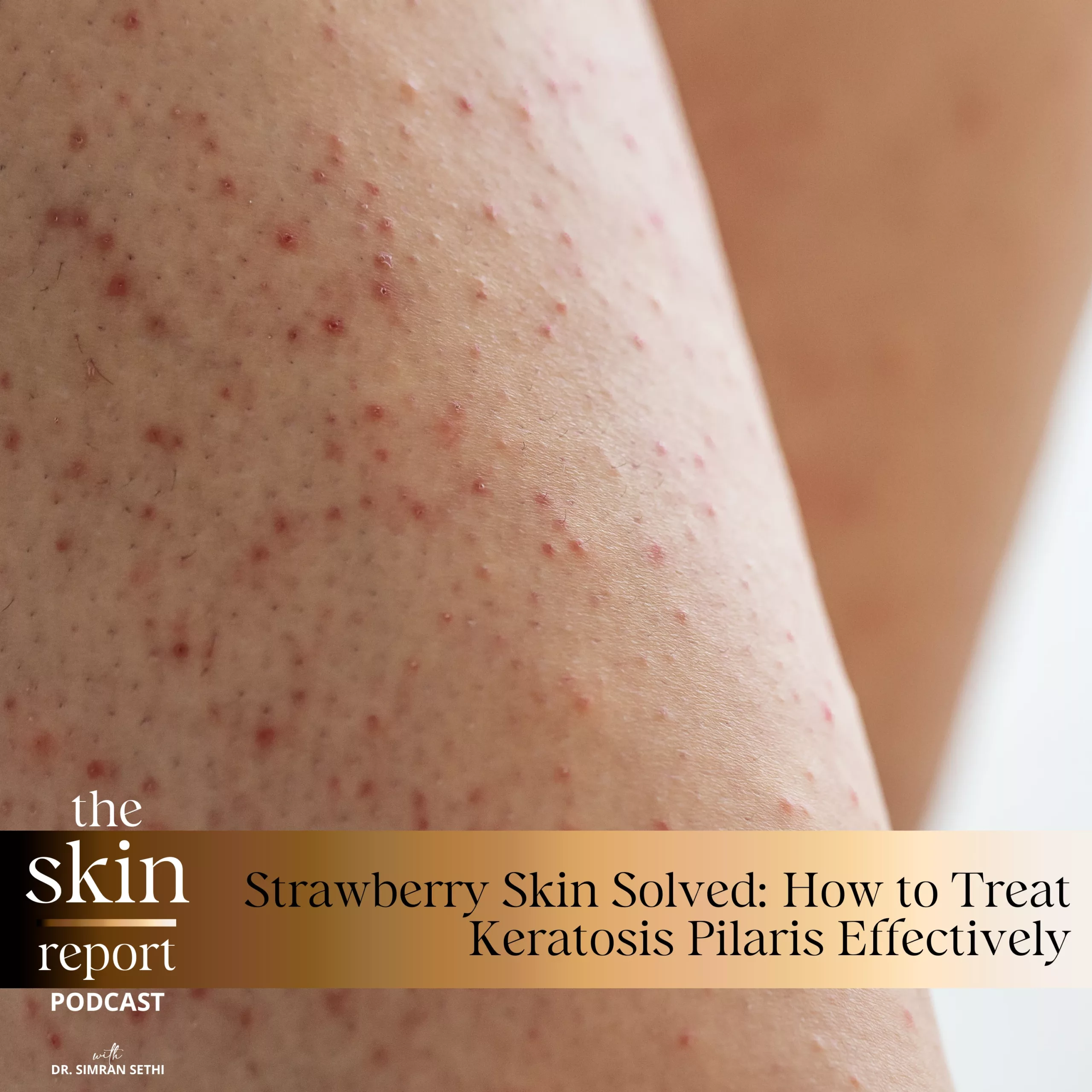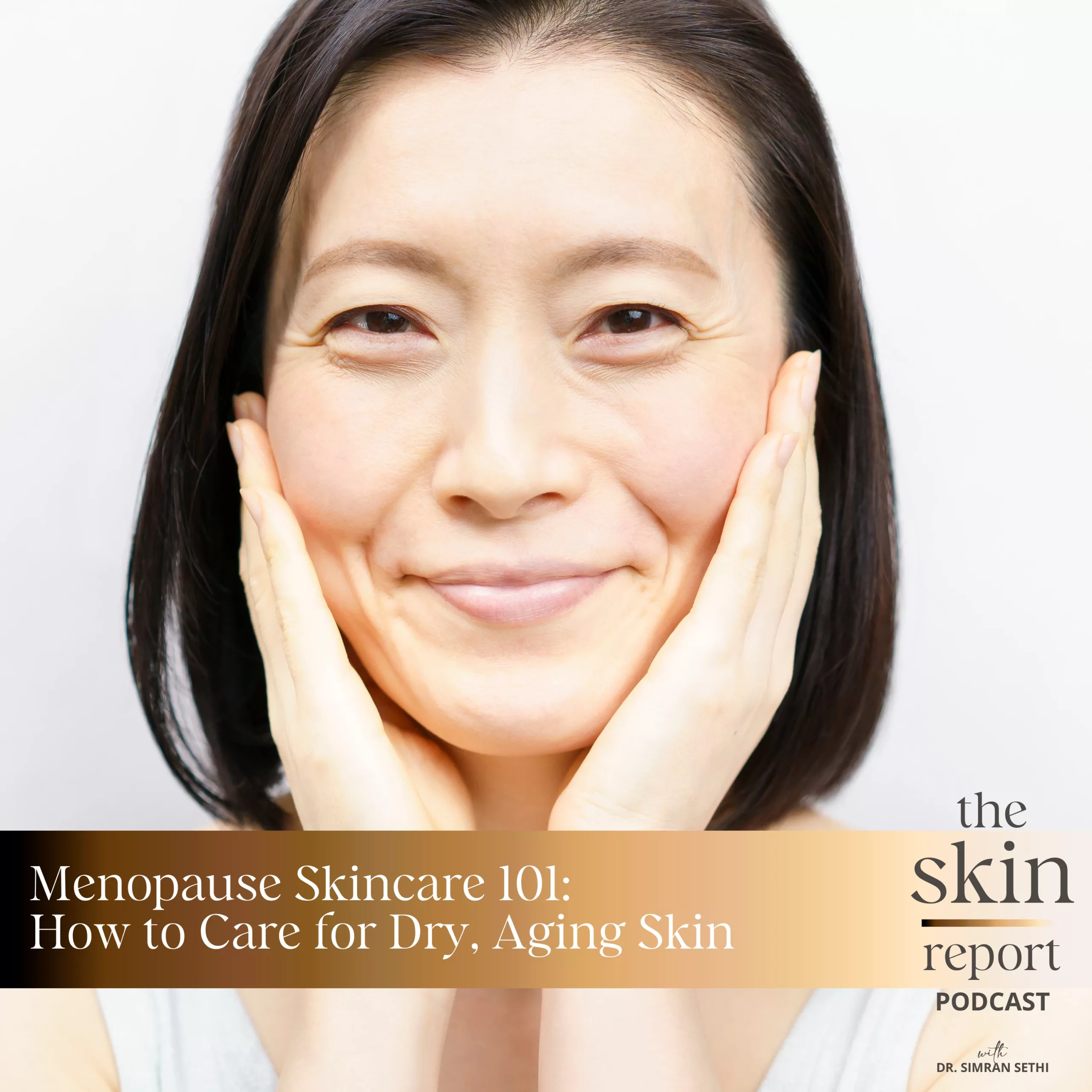Hello, everyone. Welcome to The Skin Report. The ingredient deep dive for this month is going to be niacinamide. Niacinamide is very, very popular. It’s in a lot of skincare products, but actually, there are a lot of people who have questions about it because niacinamide can actually cause increased irritation in the skin. So we’re going to talk about what it is, how is it used, who should use niacinamide and when to avoid using niacinamide. I’m Dr. Simran Sethi. I’m a board certified internal medicine doctor who also specializes in medical aesthetics. Let’s get started today.
Niacinamide, which is also Vitamin B3, is a skincare ingredient, which is commonly found in moisturizers, serums, and is often used to basically build your skin barrier. So it’s a moisturizing agent. Niacinamide has been around for a very long time and is used in different concentrations. So you’ll find skincare products that list niacinamide. They don’t always list the concentration of it or strength of the niacinamide, but in most cases, if they do, then likely, the niacinamide is the leading ingredient in the product. I’ve seen products that have niacinamide strengths from 1% all the way to 10%. And again, when you think about how is niacinamide used or why is it used, it’s a skincare ingredient that is used for reduction of skin irritation, hydration, skin barrier building, and reduction of hyperpigmentation in darker skin tones, especially because in darker skin tones, hyperpigmentation is caused by increased irritation.
Now, I’ve had quite a few people ask me in comments, and also in my clinic, “I’ve used niacinamide. It’s meant to hydrate my skin, but it actually gave me a very sensitive breakout,” or “My skin got really red,” which seems very counterintuitive based on what niacinamide is used for. But this can happen. There are people who are allergic to niacinamide, and when I say allergic, it’s not as if they got vitamin B3 which is niacin, they would have some sort of bad allergic response and their body can’t have it again. It causes sensitivity and flushing in the skin. Back in the day in internal medicine, we would prescribe niacin to people to lower their cholesterol. And in some people, when they took niacin, especially at higher doses, they would have this full-blown flushing of the face and they couldn’t tolerate it. Their face, their body would feel hot, it would be flushed.
Likewise, niacin or niacinamide in skincare can do the same thing in some people. So if you have had a reaction to niacinamide or have a product that you’re having a reaction to, take a look at it and make sure it doesn’t have niacinamide in it because it is possible that you are that small group of people who start getting flushing from using niacin. And generally, if you have very sensitive skin and a broken skin barrier, I would advise you to actually stay away from products that have niacinamide in them. Or the niacinamide is the leading ingredient where it’s listed as one of the first few ingredients or the strength of the niacin and it is stated because if you are going to have a reaction, you’re going to be more prone to it with a broken skin barrier.
Also, if you handle niacin or niacinamide normally, but you have a procedure like a chemical peel, a microdermabrasion, or a laser or microneedling procedure, your skin for at least a week is going to be a little more sensitive. That might also be a good time to stop your products that have niacin or niacinamide in them and let your skin heal up, and then you can resume them. So niacinamide is a great product. It’s hydrating, it helps build the skin barrier, but in some people, it can do the opposite, cause hypersensitivity, skin irritation, flushing, and generally, the higher the strength of the niacinamide, the more likely that’s going to happen. So if you stick with products that have a strength of 1 to 5%, I think your chances of having that response to it are going to be reduced.
Niacinamide is a commonly used ingredient in a lot of products. If you have it in a product that you enjoy or you’ve had a bad reaction to it, I’d like to hear your experience about it.


